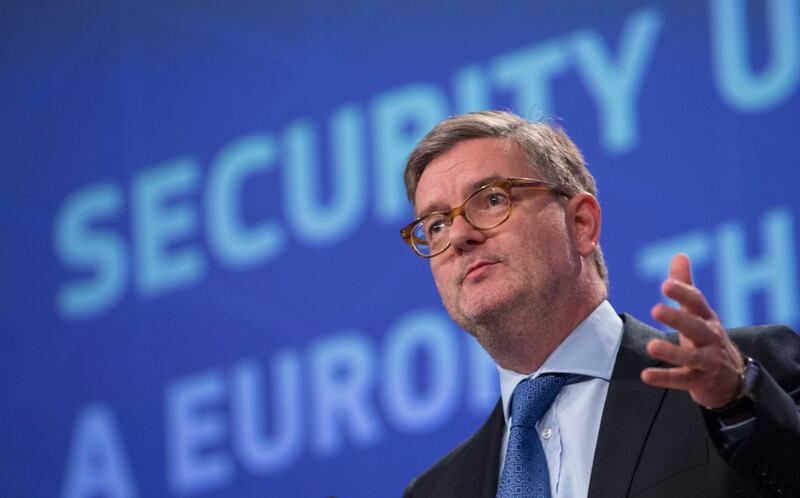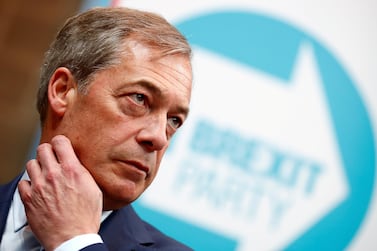Despite the Brexit travails, Sir Julian King, the British European Commissioner who is responsible for security of the bloc, will take over as the EU’s most senior official for five days over the Easter break.
The decision, which has drawn some ridicule among insiders, was made ahead of the original date for the UK’s planned exit to the European Union on March 29 suggesting some degree of prescience in the organisation’s senior levels.
French leader Emmanuel Macron had previously tried to oust Mr King from his senior European Commission role in exchange for a longer Brexit deadline, but other EU leaders disagreed with him and granted an extended deadline until October 31.
The commissioner, who is a former British ambassador to Paris, has previously said he expected to be out of a job by the end of March and anticipated returning to London in a new role.
European Commission chief Jean-Claude Juncker was forced to praise Mr King’s “exemplary” performance on the security portfolio, according to accounts of the summit meeting that postponed the departure date. The gathering last month saw tense exchanges over delay to Brexit and the conditions that would surround it.
Other European leaders have said Britain’s remains a full participant until the moment of its departure. European Council president Donald Tusk insisted Britain could not be relegated to second-class status in its final months.
On Tuesday, Mr Tusk told MEPs in Strasbourg: “We should approach this seriously as the UK members of the EU Parliament will be there for several months, maybe longer. They will be full members of this Parliament, with all their rights and obligations.
“I’m speaking about this today because I have strongly opposed the idea that during this further extension, the UK should be treated as a second category member state – no it cannot!”
After failing to execute Brexit, UK Prime Minister Theresa May has come under renewed pressure to step down from members of her own party as contenders jockey to be the future leader.
On Monday, Home Secretary Sajid Javid gave a speech criticising the government’s record on crime, saying he could have ended up becoming a criminal in different circumstances. Speaking in east London, he described knife crime as “a national energy” and lauded the controversial stop and search technique.
Other ministers including Boris Johnson, Jeremy Hunt, Amber Rudd and Dominic Raab have also showed interest in becoming the future prime minister.
The ruling Conservative Party has slumped in the polls since the decision to abort the March departure date, which means that the country is also preparing to take part in the European parliament elections next month.
On Thursday, Nigel Farage's Brexit Party looked on course to win the European elections, with a YouGov survey for British newspaper The Times suggesting that the former UKIP leader was 23 per cent ahead, a point in front of the Labour Party and five points ahead of the Conservative Party.






